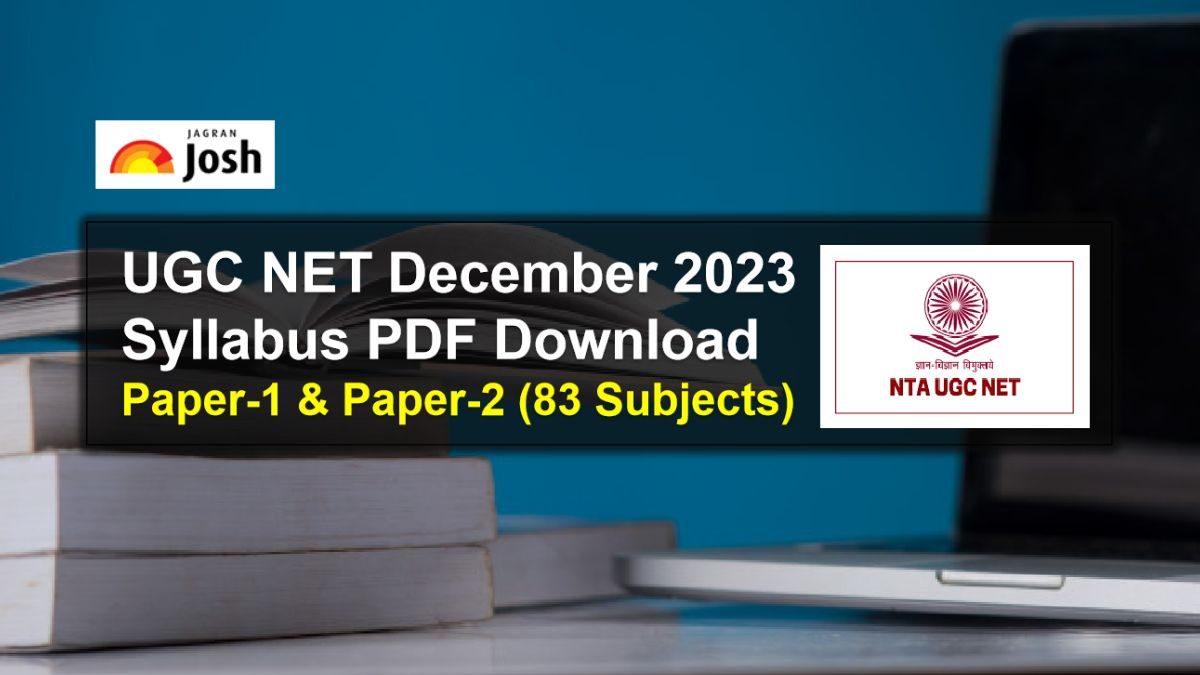Jagran Josh
UGC NET Syllabus 2023 for Paper 1
Subjects
Topics
Teaching: Concept, Objectives, Levels of teaching (Memory, Understanding, and Reflective), Characteristics, and basic requirements.
Learner’s characteristics: Characteristics of adolescent and adult learners (Academic, Social, Emotional, and Cognitive), Individual differences.
Factors affecting teaching related to Teacher, Learner, Support material, Instructional facilities, Learning environment, and Institution.
Methods of teaching in Institutions of higher learning: Teacher-centred vs. Learner centred methods; Off-line vs. On-line methods (Swayam, Swayamprabha, MOOCs, etc.).
Teaching Support System: Traditional, Modern, and ICT-based.
Evaluation Systems: Elements and Types of Evaluation, Evaluation in Choice Based Credit System in Higher Education, Computer-based testing, Innovations in Evaluation Systems.
Research: Meaning, Types, and Characteristics, Positivism and Postpositivistic approach to research.
Methods of Research: Experimental, Descriptive, Historical, Qualitative, and Quantitative Methods.
Steps of Research.
Thesis and Article writing: Format and styles of referencing.
Application of ICT in research.
Research ethics.
A passage of text is given. Questions be asked from the passage to be answered.
Communication: Meaning, types, and characteristics of communication.
Effective communication: Verbal and Non-verbal, Inter-Cultural and group communications, Classroom communication.
Barriers to effective communication.
Mass-Media and Society.
Types of reasoning.
Number series, Letter series, Codes, and Relationships.
Mathematical Aptitude (Fraction, Time and Distance, Ratio, Proportion and Percentage, Profit and Loss, Interest and Discounting, Averages, etc.).
Understanding the structure of arguments: argument forms, the structure of categorical propositions, Mood and Figure, Formal and Informal fallacies, Uses of language, Connotations, and denotations of terms, Classical square of opposition.
Evaluating and distinguishing deductive and inductive reasoning.
Analogies.
Venn diagram: Simple and multiple uses for establishing the validity of arguments.
Indian Logic: Means of knowledge.
Pramanas: Pratyaksha (Perception), Anumana (Inference), Upamana (Comparison), Shabda (Verbal testimony), Arthapatti (Implication) and Anupalabddhi (Non-apprehension).
Structure and kinds of Anumana (inference), Vyapti (invariable relation), Hetvabhasas (fallacies of inference).
Sources, acquisition, and classification of Data.
Quantitative and Qualitative Data.
Graphical representation (Bar-chart, Histograms, Pie-chart, Table-chart, and Line-chart) and mapping of Data.
Data Interpretation.
Data and Governance
ICT: General abbreviations and terminology.
Basics of Internet, Intranet, E-mail, Audio and Video-conferencing.
Digital initiatives in higher education.
ICT and Governance.
Development and environment: Millennium development and Sustainable development goals.
Human and environment interaction: Anthropogenic activities and their impacts on the environment.
Environmental issues: Local, Regional, and Global; Air pollution, Water pollution, Soil pollution, Noise pollution, Waste (solid, liquid, biomedical, hazardous, electronic), Climate change and its Socio-Economic and Political dimensions.
Impacts of pollutants on human health.
Natural and energy resources: Solar, Wind, Soil, Hydro, Geothermal, Biomass, Nuclear, and Forests.
Natural hazards and disasters: Mitigation strategies.
Environmental Protection Act (1986), National Action Plan on Climate Change, International agreements/efforts -Montreal Protocol, Rio Summit, Convention on Biodiversity, Kyoto Protocol, Paris Agreement, International Solar Alliance.
Higher Education System: Governance, Polity & Administration
Institutions of higher learning and education in ancient India.
Evolution of higher learning and research in post-independence India.
Oriental, Conventional, and Non-conventional learning programs in India.
Professional, Technical, and Skill-based education.
Value education and environmental education.
Policies, Governance, and Administration.
#UGC #NET #Syllabus #December #Exam #Paper #Paper #PDF #Download #Link #NTA #NET #Subjects
